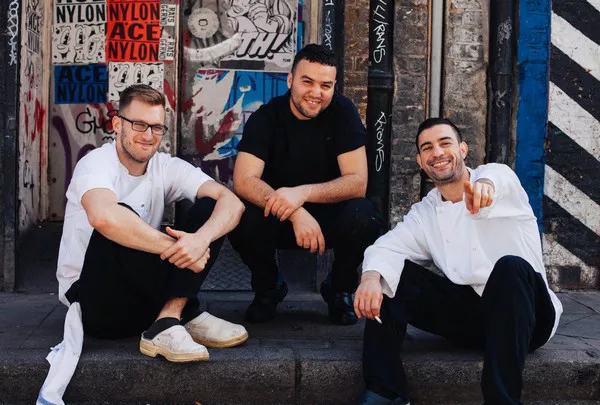Romantic gestures and expressions of affection play a significant role in many relationships. They help to strengthen emotional bonds, communicate love, and keep the relationship vibrant and fulfilling. However, not everyone expresses their affection in the same way. If your boyfriend is not as romantic as you would like, it can lead to feelings of disappointment or frustration. Understanding why this might be the case and knowing how to address it constructively can help you navigate these challenges and find ways to enhance the romantic aspect of your relationship.
Understanding the Nature of Romance
Romance is subjective and can vary greatly from one person to another. What one person considers romantic may not hold the same meaning for someone else. Generally, romance involves expressions of love, affection, and admiration through actions, words, and gestures. These can include:
Surprise Gifts: Small tokens of affection or thoughtful presents.
Quality Time: Spending meaningful time together, free from distractions.
Affectionate Gestures: Physical touch, such as hugs, kisses, and holding hands.
Compliments: Expressing appreciation and admiration for your partner.
Thoughtful Acts: Doing something special or considerate that shows you care.
Identifying the Underlying Causes
Before addressing the issue of romance in your relationship, it’s important to understand why your boyfriend might not be as romantic as you would like. There could be various reasons, including:
1. Different Love Languages
People express love in different ways, often categorized into “love languages.” These include Words of Affirmation, Acts of Service, Receiving Gifts, Quality Time, and Physical Touch. Your boyfriend might have a different love language from yours. For instance, if his love language is Acts of Service and yours is Receiving Gifts, you might feel that he is not romantic, even though he shows his love through actions rather than gifts.
2. Personal and Cultural Differences
Cultural background and personal upbringing can influence how individuals express romance. Some people might come from backgrounds where romantic gestures were not emphasized, while others may have different cultural norms around romance. Understanding these differences can provide insight into why your boyfriend may not be as expressive in the way you expect.
3. Emotional or Psychological Factors
Sometimes, a lack of romance can be linked to emotional or psychological factors. These can include:
Previous Relationship Experiences: Past relationships or experiences might impact how someone expresses affection.
Mental Health Issues: Conditions like depression or anxiety can affect how someone engages in romantic behaviors.
Stress and Life Circumstances: High levels of stress or significant life changes can also impact one’s ability to focus on romantic gestures.
4. Relationship Dynamics
The dynamics of your relationship may also play a role. For example, if there have been conflicts or unresolved issues, this can impact the level of romance in the relationship. Additionally, if you have different expectations or communication styles, this could affect how romance is expressed and perceived.
Strategies for Addressing the Issue
Once you have a better understanding of why your boyfriend may not be as romantic, you can take constructive steps to address the issue and enhance the romantic aspect of your relationship.
1. Communicate Openly and Honestly
Effective Communication: The first step is to have an open and honest conversation with your boyfriend about your feelings. Express your thoughts and emotions without placing blame. Use “I” statements to focus on how you feel rather than accusing him of not being romantic. For example, say, “I feel unappreciated when we don’t spend quality time together” instead of “You never make any romantic gestures.”
Active Listening: Ensure that you also listen to his perspective. He may have reasons or feelings that you are not aware of. Understanding his point of view is crucial for finding a mutually satisfying solution.
2. Understand Each Other’s Love Languages
Identify Love Languages: Take some time to learn about each other’s love languages. You can use resources like the book “The Five Love Languages” by Gary Chapman or take online quizzes to identify your love languages.
Adapt and Compromise: Once you understand each other’s love languages, find ways to incorporate them into your relationship. If your boyfriend’s love language is Acts of Service, and yours is Receiving Gifts, find a balance that allows both of you to feel valued and appreciated.
3. Set Realistic Expectations
Adjust Expectations: Recognize that not everyone expresses romance in the same way. Adjusting your expectations to align with his style of affection can help reduce frustration. For example, if he shows love through practical support rather than grand gestures, appreciate those actions as expressions of his love.
Appreciate Small Gestures: Sometimes, romance can be found in the small, everyday actions. Look for and appreciate these subtle signs of affection, such as thoughtful comments, supportive behavior, or shared moments of connection.
See Also: How Long is It Normal Before Saying “I Love You”?
4. Encourage and Model Romantic Behavior
Be a Role Model: Demonstrate the type of romantic behavior you would like to receive. For example, if you enjoy surprise gestures, plan a few surprises for him. Modeling the behavior you desire can encourage him to reciprocate in kind.
Encourage Romantic Gestures: Gently encourage your boyfriend to engage in romantic behaviors by expressing how much you would appreciate certain actions. For example, suggest a date night or share your enjoyment of specific romantic gestures.
5. Create Opportunities for Romance
Plan Romantic Activities: Take the initiative to plan and organize romantic activities that you both enjoy. Whether it’s a weekend getaway, a special dinner, or a simple picnic, creating opportunities for romance can help rekindle the spark in your relationship.
Be Spontaneous: Incorporate spontaneity into your relationship by surprising him with small gestures of affection or planning unexpected outings. Spontaneous acts can bring excitement and novelty to your relationship.
6. Work on Relationship Quality
Strengthen Emotional Connection: Focus on building a strong emotional connection with your boyfriend. Spend quality time together, engage in meaningful conversations, and support each other’s goals and dreams.
Address Conflicts: Work on resolving any conflicts or issues that may be impacting the romantic aspect of your relationship. Addressing underlying problems and improving the overall quality of the relationship can create a more conducive environment for romance.
When to Seek Professional Help
If you’ve tried various strategies and still feel unsatisfied with the level of romance in your relationship, it may be helpful to seek professional guidance. A couples therapist can help you explore deeper issues, improve communication, and develop strategies for enhancing your relationship.
Conclusion
Navigating a relationship where your boyfriend is not as romantic as you would like requires understanding, communication, and patience. By exploring the underlying reasons for the lack of romance, setting realistic expectations, and working together to enhance the romantic aspect of your relationship, you can foster a deeper connection and mutual satisfaction. Remember that romance is just one aspect of a relationship, and nurturing other elements, such as emotional support, trust, and shared experiences, is equally important for a fulfilling and lasting partnership.
Related topics:



























